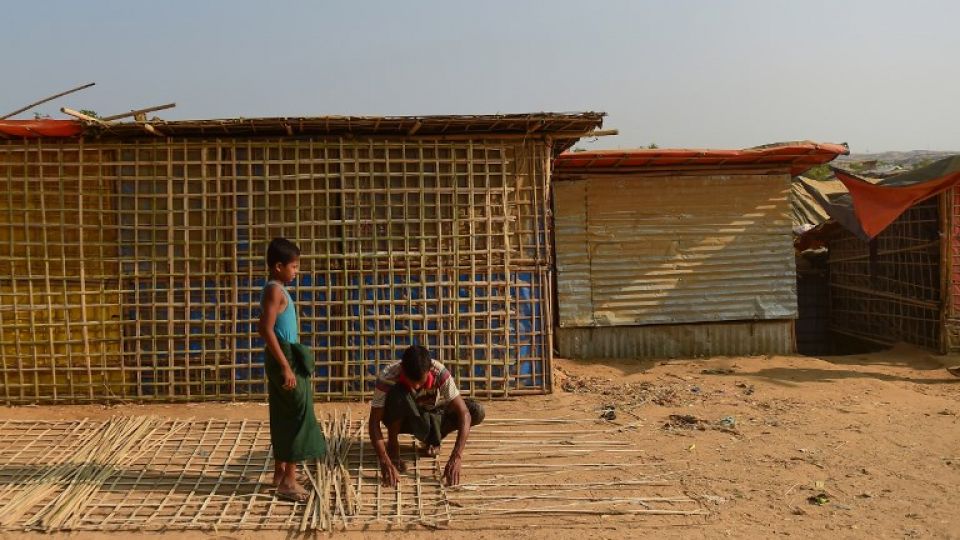September 7, 2018
Bangladesh must control the narrative on the Rohingya issue, argues one Daily Star opinion piece.
In the past we have been painfully aware of the interminable waves of persecution of Rohingya Muslims from the Rakhine state in Myanmar and the consequent foisting of an increasing refugee burden on Bangladesh. But now, nobody is left in any doubt about the intractability of the problem: “Promised” repatriation of Rohingyas sheltered in Bangladesh to their homes in the Rakhine state is being reneged on. Denied of citizenship rights, returnees would be consigned to a life in camp and restrictive movement with the levers retained to revert to ethnic cleansing at will.
The point is you cannot give the reluctant host even a benefit of doubt, especially on the back of the confluence of stepped up diplomatic pressures on Myanmar from within and outside of the UN system to behave responsibly. Of course, these lacked endorsement of China and Russia to make it binding on the generals and their cohort to answer for genocidal charges outlined in a damning United Nations Security Council report! It also recommended invoking jurisdiction of the International Criminal Court or a Rwanda-type special tribunal to bring the recalcitrant to justice.
Unabashedly, Myanmar authorities go about their “public relations” activities (read disinformation campaign!), one specimen of which goes like this. In a book published by the military junta, picture of two corpses floating in the Buriganga in 1971 was used blaming the Rohingyas for the cruel act. In a chapter on ethnic mayhem a picture was captioned: “After the British colonial occupation of the coastal region, Rohingyas infiltrated into the area.” Actually the photo was shot in Tanzania in 1996 when Hutu refugees were entering the country fleeing genocide in Rwanda.
In contrast to such deceitful hate campaign of the Burmese military, we appear to be pussyfooting in our reaction. We are perhaps erring on the side of caution in dealing with Myanmar which by any definition is a tough customer to countenance especially in sensitive humanitarian concern of their own creation. It is interesting to note though, “Both Myanmar and Bangladesh have shown diplomatic maturity by not raising the Rohingya issue in the (Bimstec) summit when the organisation is not ready to deal with this kind of issue,” so stated the secretary general M Shahidul Islam. Since the Bimstec is a grouping comprising Bangladesh, India, Myanmar, Sri Lanka, Thailand, Bhutan and Nepal, even a discussion in the retreat among some friendly nations could have added a dimension to strictly bilateral confines on the issue at hand.
Crucially, how can we clinch a breakthrough in ensuring that Myanmar submit to world opinion on Rohingya issue? Precisely, why don’t China, Russia, the US and India make a common cause of leveraging Myanmar to grant citizenship rights to the Rohingya Muslims solely dictated by humanitarian considerations? The emphasis “solely” is aimed to stir the same human rights compunction that big countries cry their hearts out on in relation to one another.
There is an existential challenge here not for the victims alone but for the perpetrator as well. Myanmar can whip up the bogey of the so-called ragtag Arakan Liberation Army to evoke sympathies of powerful countries drawing on religious extremist threats but their large-scale persecution is breeding “lost generations” of disgruntled Muslim Rohingyas. They may fall an easy prey to recruitment by sleeper cells of ISIS or al-Qaeda expelled from Syria and Afghanistan, and some other adopted homes. So unemployed or idling away Rohingyas may be treated like a ticking time bomb.
Michael Kugelman, Deputy Director, Wilson Centre Washington stated in reply to a written question to Prothom Alo, “For a long time, in fact, in last few centuries, human rights, and other moral issues have been ignored on the plea of so-called national interest. We are seeing the replay of the same theatrics in regard to the Rohingya question.
Both Beijing and Moscow regard investments in oil and infrastructures as too important to risk annoying Myanmar government. It is for this reason that they are not inclined to support any meaningful step in favour of the Rohingya.”
This is only the first year of refugee care and only 35 percent of the budget requirement has been available so far. Already, experts discern a bit of donor fatigue. The refugees may be billeted for the long haul—it may be difficult to limit the rehabilitation costs going forward.
Perhaps in time we have to go for refugee sharing. Turkey and Jordan have accepted Syrian refugees, and they are bank-rolled for the task.
All this pain of taking disturbing options can be obviated if China and Russia break out of their defence and pampering of Myanmar realising an international stake in the matter.
The plan for construction of B-Terminal for Chattogram port has evinced enthusiastic interest of five countries—China, India, Singapore, Korea and UAE. We are linked with China in USD 60 billion worth of infrastructure projects. Bangladesh is part of the Chinese One Belt, One Road Initiative and its global banking institution. Our special relationship with Russia dating back to the liberation war days is prospering. That said, may we enter a plea with the veto empowered countries to use their good offices with Myanmar to take back their nationals with full dignity accorded to them?


